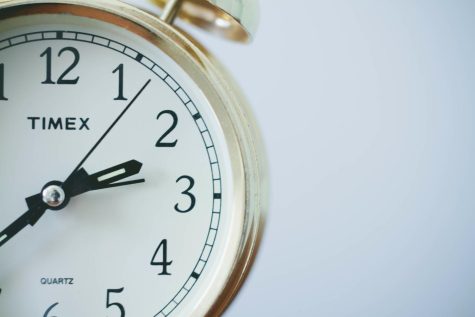2022 Daylight Savings
December 14, 2022
Entering the new month of November, Daylight Savings time is drawing closer with only a little more than a week away. On Sunday, November 6th, approximately at 2 a.m. time will fall back resorting to everyone getting an extra hour of sleep. However, Legislation was unanimously passed by the Senate earlier this year, now called the Sunshine Protection Act, which was introduced by Senator Marco Rubio, R-Florida, and seven other Bipartisan members of Congress. It works to eliminate the changes of time according to seasons. Since the bill was unanimously passed, little movement has been made, and many people still need to decide if the House of Representatives will take up the Bill. According to a study cited by Congressman Frank Pallone, 71% of Americans agree with ending the time changes every year. In regards to daylight savings, there are still a small number of states who choose to do their own thing. For example, for many years Arizona and Hawaii are two states that do not set their time to Daylight Savings. Many territories overseas do not regard this time, including Puerto Rico, American Samoa, Guam, and the Mariana Islands. Sleep experts have also spoken on this topic.
The American Academy of Sleep Medicine shared its thoughts on this idea suggesting standard time comes more beneficial to humans’ Circadian rhythms. The article provides examples of how these rhythms orchestrate our lives. The Sunshine Protection Act was first introduced in January 2021, if the bill were to be passed within the next year, daylight savings would stay permanent and be taken into effect on November 3rd, 2023. In 2018, there was an overwhelming amount of voters who were in favor of Proposition 7 which can give lawmakers the power to make daylight savings permanent. The Illinois American Academy of Sleep Medicine has now argued that daylight savings time can negatively impact someone’s sleep due to the changes in the scheduled time.
The Sunshine Protection Act was first introduced in January 2021, if the bill were to be passed within the next year, daylight savings would stay permanent and be taken into effect on November 3rd, 2023. In 2018, there was an overwhelming amount of voters who were in favor of Proposition 7 which can give lawmakers the power to make daylight savings permanent. The Illinois American Academy of Sleep Medicine has now argued that daylight savings time can negatively impact someone’s sleep due to the changes in the scheduled time.
The main question they supported was, “How do daylight saving time changes affect our sleep?” The article, from AASM Daylight Saving Time Position, states, “The spring and fall time changes also can disrupt our sleep schedule and have a negative effect on the quality of our sleep”. AASM experts also claim to say seasonal time changes are unfavorable to someone’s health. These changes in time have been linked to changes in the cardiovascular system, an increased chance of having a stroke, and an increased rate of hospital admissions. Past research has explained when compared to standard time, there is a risk of acute myocardial infarction (AMI) in the fall and a decrease in the spring. According to the National Conference of State Legislatures,¨ about 20 states have passed the act to make daylight savings permanent.¨If daylight savings were to take effect, one main “pro” would be that people would not have to worry about their loss of sleep. Until the state legislators make their final decision about this topic, the time will still be changing on Sunday, November 6th at 2:00 AM.












